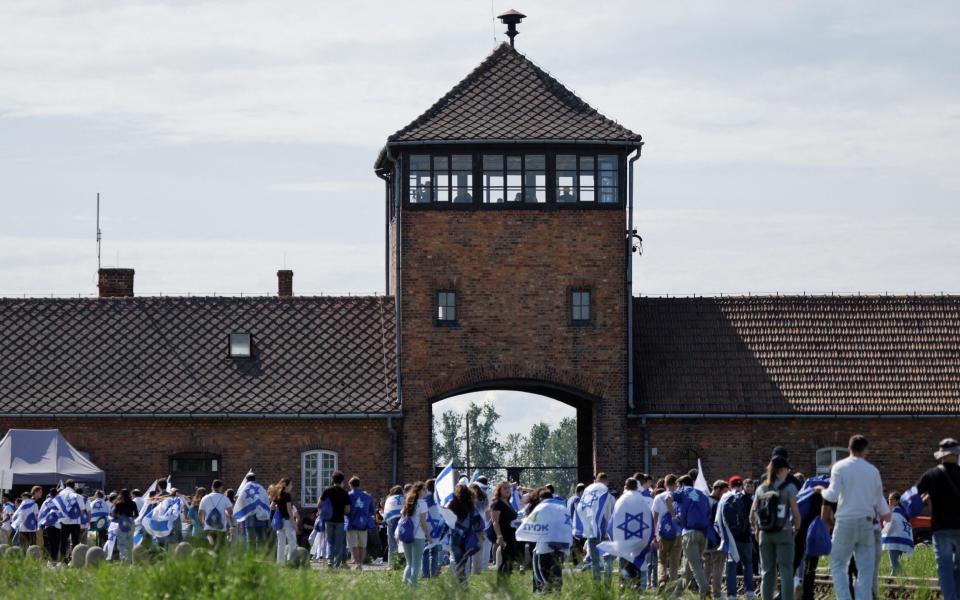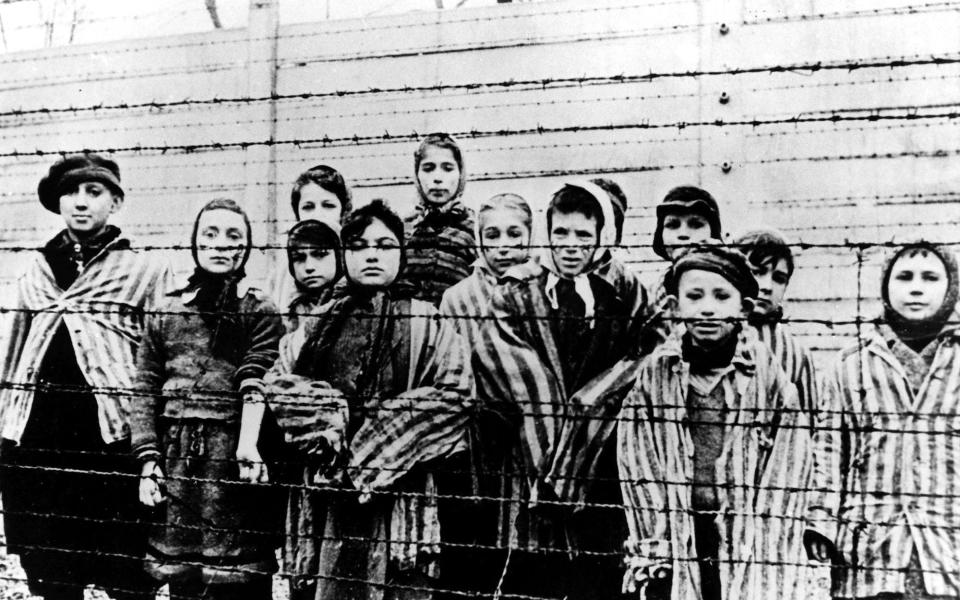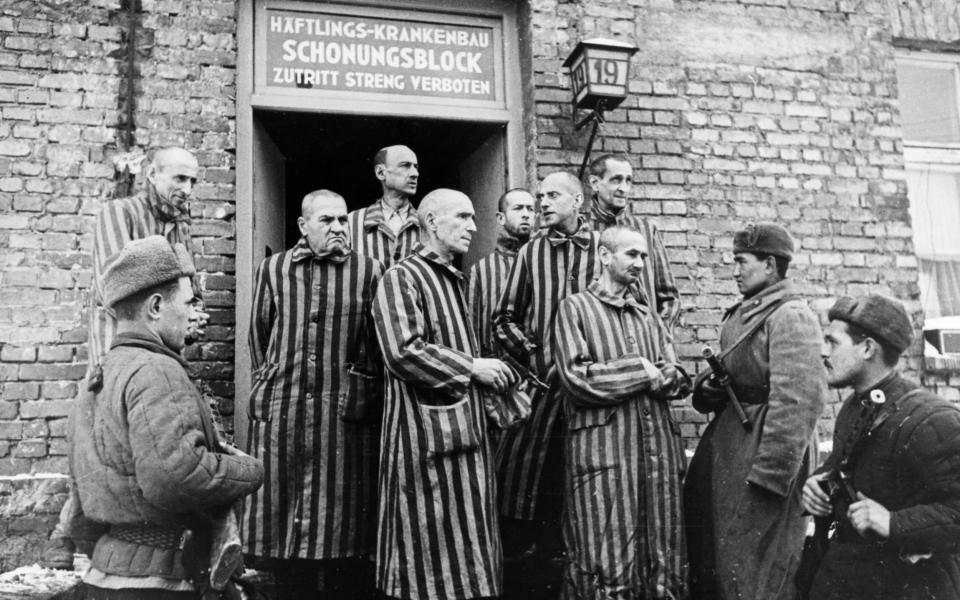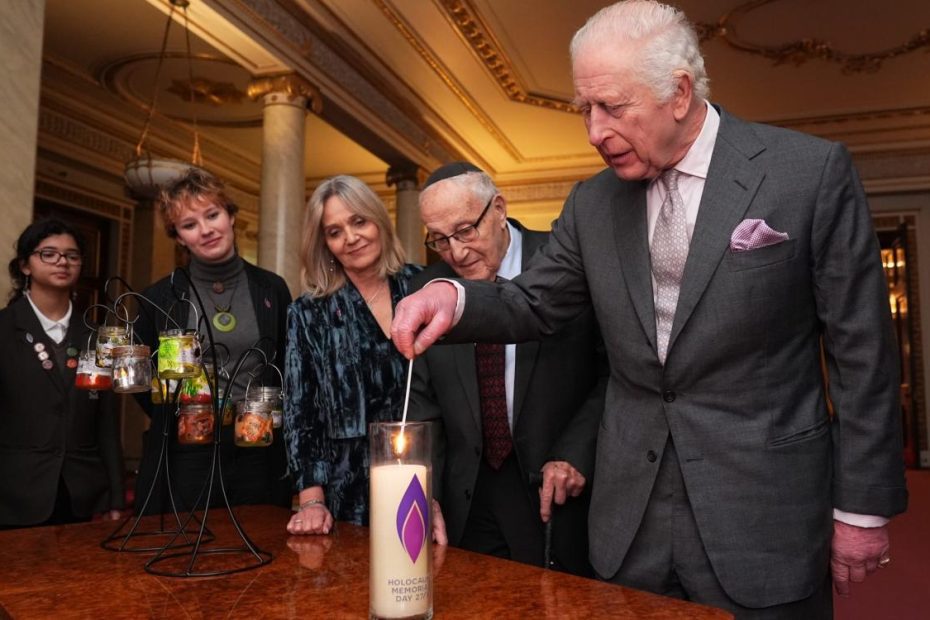The king will become the first British monarch to visit Auschwitz when he celebrates the “important” 80th anniversary of its liberation later this month.
The monarch will join heads of state, presidents and prime ministers from around the world in a moving commemoration ceremony at the Auschwitz-Birkenau Museum and Memorial in Poland on January 27.
The King, patron of the Holocaust Memorial Day Trust, hosted an event at Buckingham Palace on Monday to hear about several initiatives aimed at ensuring the experiences of Holocaust survivors are never forgotten.
He was accompanied by Manfred Goldberg, 94, who survived a series of labor camps, including Stutthof in occupied Poland, and a death march, during which he discussed his plans to attend the memorial.
“I feel like I should celebrate the 80th anniversary,” he said. “It's so important.”

Presidents and Prime Ministers will gather for a commemoration ceremony in Poland – Kuba Stezycki
Speaking about the small number of Holocaust survivors still alive to share their stories, the king added: “I cannot bear the dwindling number left behind.”
The monarch has worked for decades to ensure the Holocaust is never forgotten and has previously described how he was inspired throughout his life by survivors' stories of immense courage and sacrifice.
In June 2015, Elizabeth II visited Bergen-Belsen in northern Germany, her first and only visit to a World War II concentration camp.
However, the only senior royal figure to visit Auschwitz is Queen Camilla, who attended the 75th anniversary commemorations there in 2020.

A new educational program using AI and virtual reality will allow children to talk to Holocaust survivors – AP
Mr Goldberg said he was “full of admiration” for the way the king had decided “not to be silent” about the Holocaust and showed the world where his sympathies lay, adding: “Silence never helps the oppressed. It always helps the oppressor.”
He said: “I think it is an astonishing affirmation from His Majesty that he fully understands the colossal injustice and atrocities committed against the Jewish people during the Holocaust.
“He seems to have made it an active part of his life to do what he can to make sure people are aware of it.”
Mr. Goldberg is one of four Holocaust survivors whose stories are part of a new educational program that uses AI and virtual reality technology to allow children to chat with them face-to-face, as if they were in be real time.

The King has said of the small number of remaining Holocaust survivors: 'I cannot bear the dwindling number left behind' – Sovfoto
The king watched a demonstration of the program, called Testimony 360: People and Places of the Holocaust, and asked Mr. Goldberg via computer: “What is the message you really want to give people?”
The digitized Mr. Goldberg responded that he would like people to realize that “indifference is a very dangerous response to injustice.”
The King was also told about an initiative called '80 Candles for 80 Years', with each holder highlighting the life of an individual or community persecuted by the Nazis.
He was shown an exhibition inspired by Anita Lasker-Wallfisch, who played cello in the women's orchestra at Auschwitz, before lighting a candle in memory of the victims of the Holocaust and more recent genocides.

